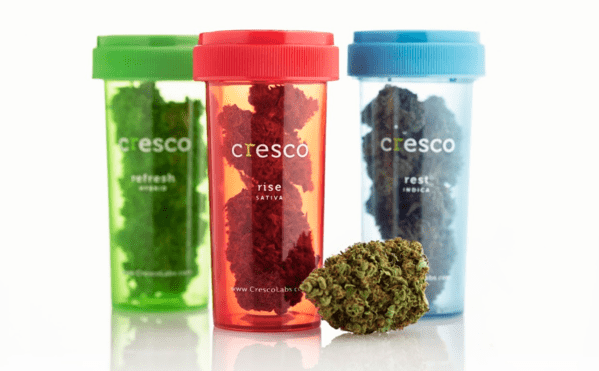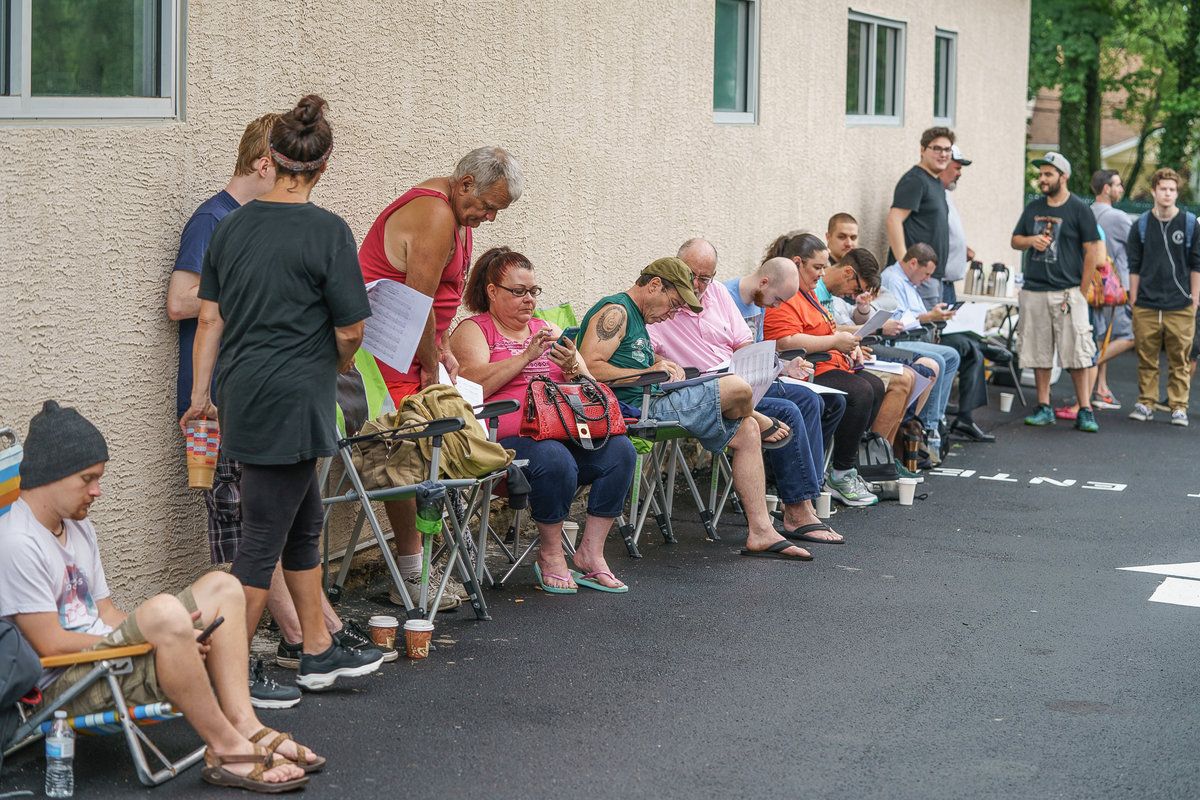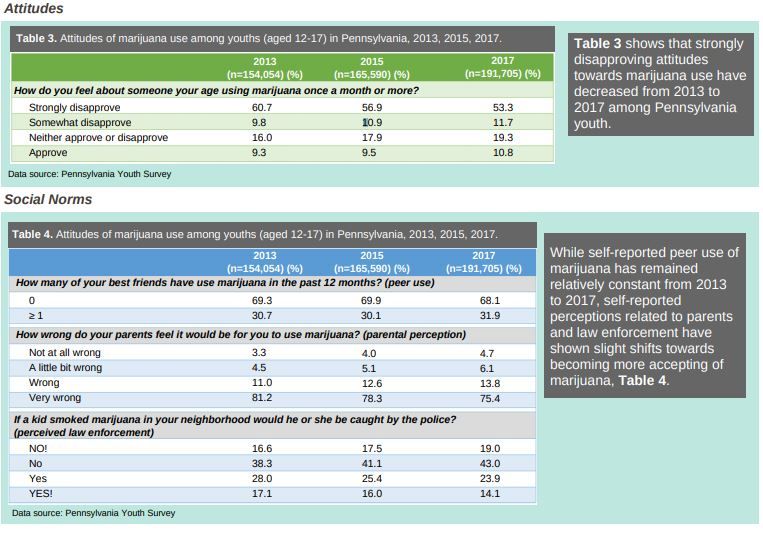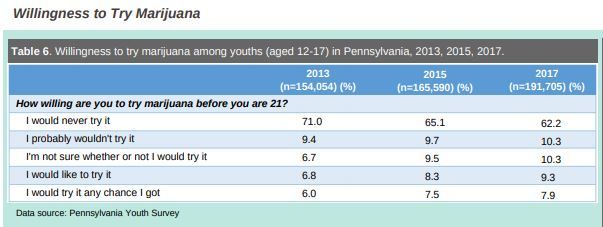Baron23
Well-Known Member
A 'game-changer' for Pennsylvania medical marijuana; flower goes on sale next week
Medical marijuana dispensaries in Pennsylvania are bracing for a surge in new customers when vaporizable “flower” — the most popular and recognizable form of cannabis — goes on sale on Wednesday, Aug. 1.
“We’re expecting 300 to 400 patients at our Abington store the first day,” said Chris Visco, co-founder of TerraVida Holistic Centers. “People will likely be in line at 8 a.m. We’re hiring an extra security guard and an extra valet parking person. This is a game-changer.”
TerraVida, which also has outlets in Malvern and Sellersville, is among a handful of dispensary chains in the Keystone State that will get the first shipments of the whole-plant product. Gov. Wolf’s office confirmed the development late Thursday.
Wolf’s spokesman, J.J. Abbott, said several of the state’s growers were expected to start shipping the high-potency buds early on Sunday to about a dozen outlets, primarily in the Philadelphia and Pittsburgh metropolitan regions. More stores are slated to come online later this month, he said.
Since the state’s medical marijuana program launched in mid-February, patients have grumbled about the limited selection of relatively expensive cannabis oils, pills and tinctures. Flower sales were prohibited.
The introduction of what the state Department of Health calls “dry leaf” into the mix will slash prices. It also provides a more familiar form of the medicine for patients who may be put off by the industry’s extraordinarily powerful waxes, shatter, and budder concentrates.
“The price point of the flower will be less than the concentrates because it doesn’t have to go through additional processing,” said Luke Schultz, a patient advocate who serves on the state’s medical marijuana advisory board. “We hope it will be at or slightly above what black market prices are, because the program should be designed to discourage people going to the black market.”
Dispensary owners said patients should expect to pay between $10 and $24 per gram, depending on the potency of the cannabis strain, and between $30 and $70 for an eighth of an ounce. The state has requested bud tenders to limit sales to each patient at 15 grams a week for the first two weeks.
“We’re trying to keep it affordable and not take advantage of anyone,” said Rob Stanley, manager of Restore Integrative Wellness Center in Fishtown, which is extending its business hours on Wednesday in anticipation of crowds. “Once the market grows, we hope to be able to further drop our prices.”
Buyers, however, won’t be able to inspect the flower before buying. The law requires medical marijuana to be sold in opaque, sealed packages. Restore will have about 18 cannabis strains in stock. TerraVida, which dominates sales in the Philadelphia suburbs, expects to have 43 strains on offer.
“You can’t see it, and you can’t smell it in the dispensary,” Stanley said. “If you want a look, we’ll have high-definition pictures. And they look great.”
Physician Sue Sisley, founder of the Scottsdale Research Institute, said flower remains the most affordable and effective form of cannabis.
Oils and concentrates are “suboptimal forms” of the plant, said Sisley, who investigates marijuana’s effects on PTSD in veterans and opioid withdrawal. “It’s like the difference between an orange and orange juice,” she said. “Flower gives you the natural entourage effect. There are 400 bioactive molecules in the plant, 130 plus cannabinoids and dozens of terpenes and flavinoids. The theory is that the molecules all work together. Processing into oils and concentrates strips many of them away.”
The grower-processors shipping flower next week include Cresco Yeltrah, Terrapin Pennsylvania, Ilera Healthcare, Holistic Farms, and Standard Farms. Dispensaries in the Philadelphia market with flower for sale will include TerraVida, Restore, Liberty on Krewstown Road in the city’s Bustleton section, and Ilera in Plymouth Meeting.
Though flower is traditionally smoked in joints, pipes and bongs, state law explicitly forbids fully burning it. Vaporization, which subjects marijuana to a lower temperature and produces fewer carcinogens, is the only approved method of consuming it. Vaping requires a separate device that may cost up to $199 for a top-of-the-line vaporizer.
“Smoking dry leaf is illegal in Pennsylvania,” said Peter Marcus, spokesman for Terrapin Pennsylvania. “If they’re caught smoking the product, their patient card could be rescinded.
“Understandably, it would be difficult for the state to enforce such a rule, but patients should still be cautious and be aware the law exists,” Marcus said. “For some consumers, they might find vaping to have a cleaner taste and easier on the throat. It’s a great method.”
Medical marijuana dispensaries in Pennsylvania are bracing for a surge in new customers when vaporizable “flower” — the most popular and recognizable form of cannabis — goes on sale on Wednesday, Aug. 1.
“We’re expecting 300 to 400 patients at our Abington store the first day,” said Chris Visco, co-founder of TerraVida Holistic Centers. “People will likely be in line at 8 a.m. We’re hiring an extra security guard and an extra valet parking person. This is a game-changer.”
TerraVida, which also has outlets in Malvern and Sellersville, is among a handful of dispensary chains in the Keystone State that will get the first shipments of the whole-plant product. Gov. Wolf’s office confirmed the development late Thursday.
Wolf’s spokesman, J.J. Abbott, said several of the state’s growers were expected to start shipping the high-potency buds early on Sunday to about a dozen outlets, primarily in the Philadelphia and Pittsburgh metropolitan regions. More stores are slated to come online later this month, he said.
Since the state’s medical marijuana program launched in mid-February, patients have grumbled about the limited selection of relatively expensive cannabis oils, pills and tinctures. Flower sales were prohibited.
The introduction of what the state Department of Health calls “dry leaf” into the mix will slash prices. It also provides a more familiar form of the medicine for patients who may be put off by the industry’s extraordinarily powerful waxes, shatter, and budder concentrates.
“The price point of the flower will be less than the concentrates because it doesn’t have to go through additional processing,” said Luke Schultz, a patient advocate who serves on the state’s medical marijuana advisory board. “We hope it will be at or slightly above what black market prices are, because the program should be designed to discourage people going to the black market.”
Dispensary owners said patients should expect to pay between $10 and $24 per gram, depending on the potency of the cannabis strain, and between $30 and $70 for an eighth of an ounce. The state has requested bud tenders to limit sales to each patient at 15 grams a week for the first two weeks.
“We’re trying to keep it affordable and not take advantage of anyone,” said Rob Stanley, manager of Restore Integrative Wellness Center in Fishtown, which is extending its business hours on Wednesday in anticipation of crowds. “Once the market grows, we hope to be able to further drop our prices.”
Buyers, however, won’t be able to inspect the flower before buying. The law requires medical marijuana to be sold in opaque, sealed packages. Restore will have about 18 cannabis strains in stock. TerraVida, which dominates sales in the Philadelphia suburbs, expects to have 43 strains on offer.
“You can’t see it, and you can’t smell it in the dispensary,” Stanley said. “If you want a look, we’ll have high-definition pictures. And they look great.”
Physician Sue Sisley, founder of the Scottsdale Research Institute, said flower remains the most affordable and effective form of cannabis.
Oils and concentrates are “suboptimal forms” of the plant, said Sisley, who investigates marijuana’s effects on PTSD in veterans and opioid withdrawal. “It’s like the difference between an orange and orange juice,” she said. “Flower gives you the natural entourage effect. There are 400 bioactive molecules in the plant, 130 plus cannabinoids and dozens of terpenes and flavinoids. The theory is that the molecules all work together. Processing into oils and concentrates strips many of them away.”
The grower-processors shipping flower next week include Cresco Yeltrah, Terrapin Pennsylvania, Ilera Healthcare, Holistic Farms, and Standard Farms. Dispensaries in the Philadelphia market with flower for sale will include TerraVida, Restore, Liberty on Krewstown Road in the city’s Bustleton section, and Ilera in Plymouth Meeting.
Though flower is traditionally smoked in joints, pipes and bongs, state law explicitly forbids fully burning it. Vaporization, which subjects marijuana to a lower temperature and produces fewer carcinogens, is the only approved method of consuming it. Vaping requires a separate device that may cost up to $199 for a top-of-the-line vaporizer.
“Smoking dry leaf is illegal in Pennsylvania,” said Peter Marcus, spokesman for Terrapin Pennsylvania. “If they’re caught smoking the product, their patient card could be rescinded.
“Understandably, it would be difficult for the state to enforce such a rule, but patients should still be cautious and be aware the law exists,” Marcus said. “For some consumers, they might find vaping to have a cleaner taste and easier on the throat. It’s a great method.”





